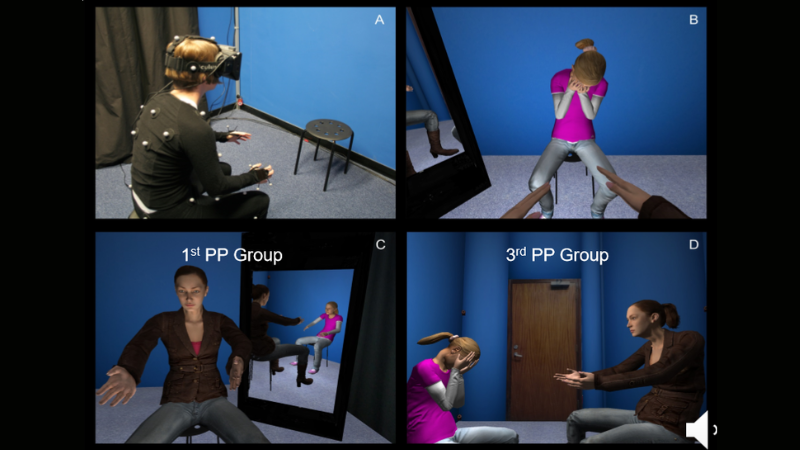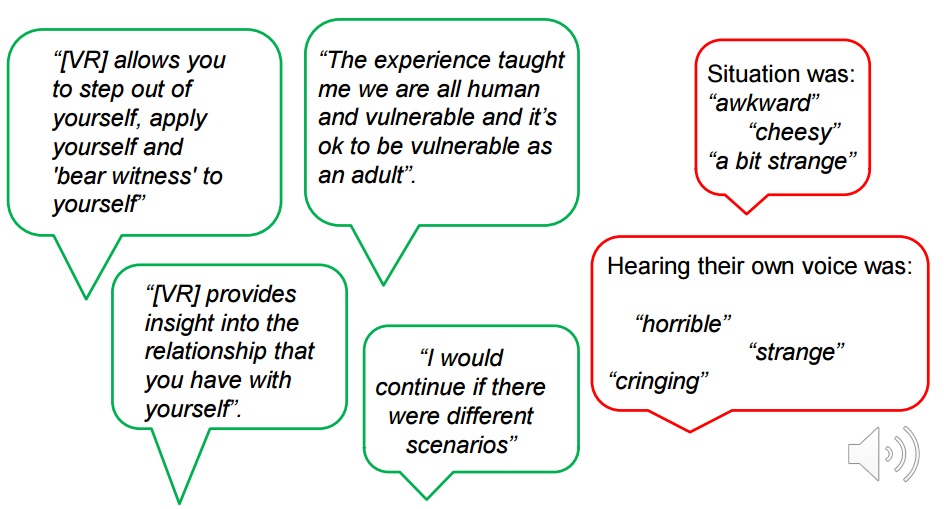
19 Feb Research: Using Virtual Reality to Embody Compassion
Are you a gamer? Maybe you like solitaire or mahjong or Tetris or Bejeweled? Or maybe you like to immerse yourself in some of the more elaborate stories and games developed by the billion dollar game industry.
Research has also shown that how we represent the body in our minds is extremely plastic – meaning changeable. You may remember an article I wrote recently about the rubber hand illusion. That exploration led to virtual reality research where people become “blended” (in the Internal Family Systems language) with the icon on the screen especially when movements in the physical body are correlated to movements on the screen.
Exciting work is being done by Caroline Falconer, Mel Slater, Aitor Rovira, John King, Paul Gilbert, Angus Antley, and Chris Brewin at the University of Nottingham, UK. They recently published an article on using virtual reality to overcome excessive self-criticism. There's plenty of research on how self-criticism can be treated by cultivating self-compassion. Compassion Focused Therapy, developed by Paul Gilbert, is the underlying model.
I was excited to hear how Caroline Falconer and her group used virtual reality to support separating from the critical parts. By identifying with a virtual avatar people in the study were able to experience a shift in perspective. As they write in their paper, “Whereas observation and practice of compassionate responses reduced self-criticism, the additional experience of embodiment also increased self-compassion and feelings of being safe.”
As Falconer and her group reported in the CFT conference in 2016, there were positive subjective responses from participants.

Falconer and her group wrote, “The key finding from this study is that while simply rehearsing the delivery and receipt of compassionate behavior leads to a reduction in self-criticism, exploiting the IVR technique of embodiment in the recipient has the additional effect of positively increasing self-compassion in naturally self-critical individuals. This is one of the first demonstrations that immersive virtual reality can be used to inculcate positive emotions that are important for mental health as well as decrease negative emotions such as fear.”
Wonderful news!
Having external tools like virtual reality and gaming helps. We can also do this on our own without the extra props.
Using imagination, we can explore what we need – or want – and then consistently and pervasively cultivate a more positive response.
What about you?
How do you work with self-criticism? Are you a gamer? If so, what kinds of games? What do you think about using virtual reality to separate from critical parts — and to develop compassion? I'd love to hear.

